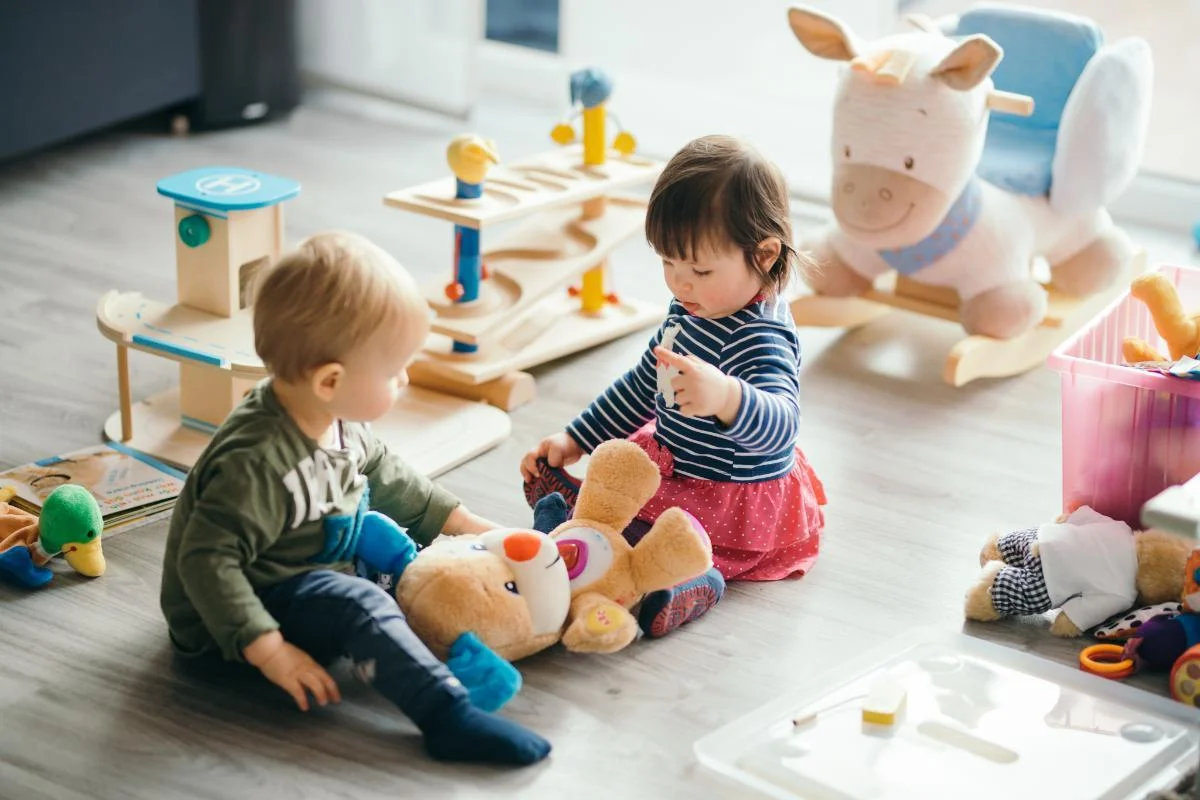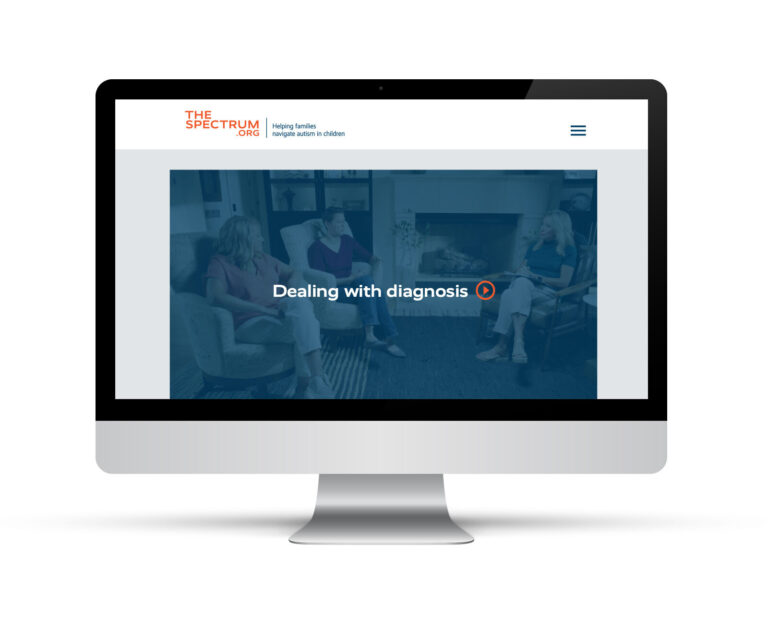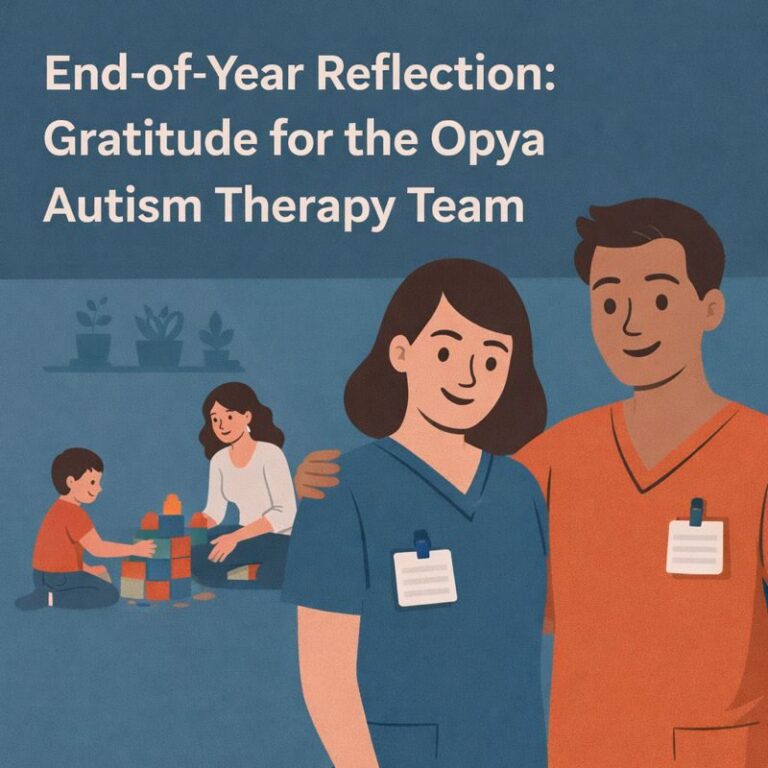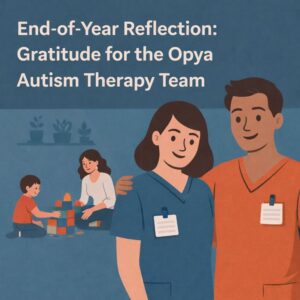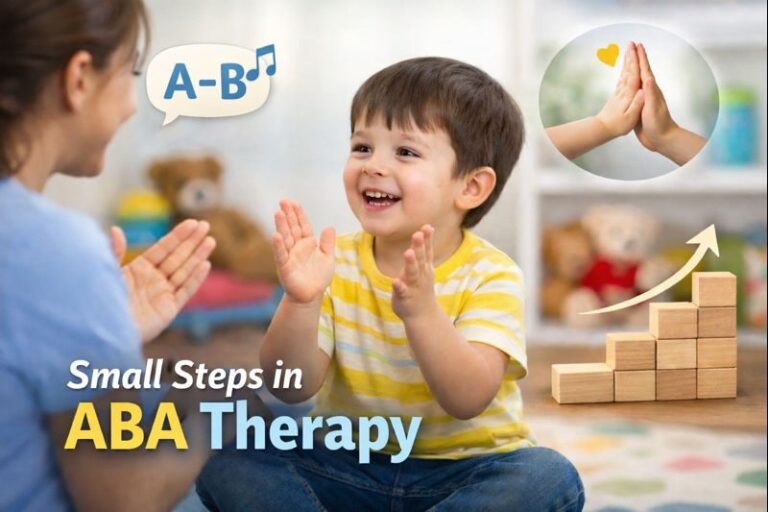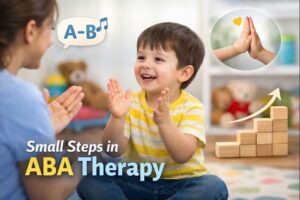It can be difficult for children diagnosed with autism to develop appropriate social skills. Getting an early start—ideally, before age six—can help these children in many ways. Because the first few years of life are formative, providing children living with autism with the foundations they need to develop social skills is especially impactful during this time. It can help reduce problematic behaviors, improve educational outcomes, and increase appropriate and fulfilling interactions with peers in the long term.
Opya provides the important foundational skill development that prepares children to begin social skills training (SST) on the right foot. If you’d like to learn more about how we assess and prepare the children in our care for social skills training, contact us today. Call (888) 300-OPYA or email us at [email protected], and one of our qualified staff will be happy to discuss how this treatment may help your child.
What Is Social Skills Training?
Social skills training is an intervention that helps children diagnosed with autism interact appropriately with adults, peers, and others. Effective autism therapies incorporate social skills training, including speech therapy, occupational therapy, and larger behavioral models like applied behavioral analysis (ABA). SST occurs within a group or in a one-on-one setting and can be highly beneficial in both contexts.
Here are a few components your child’s SST may include:
● Peer mentoring – Neurotypical children of the same age as those diagnosed with autism can become peer mentors. In addition to serving as tutors when needed, they model appropriate interactions and social exchanges to give their mentees a leg up in the classroom environment.
● Role-playing – A licensed therapist can walk your child through hypothetical situations such as waiting in line or making eye contact. This allows them to get hands-on experience before being in a “real-life” situation with peers or strangers.
● Playing with toys or games – Play is a powerful educational tool for all children. An autism therapist can help direct your child’s instinct to play for social skills training purposes by incorporating specific games or toys or guiding the narrative of imaginative play.
● Working with visual or written materials – Social stories and scripts can help children diagnosed with autism understand specific social concepts. This method works best when they also put the skills or concepts covered into practice afterward.
● Video modeling – Similar to working with visual or written materials, children watch a video of a specific social skill or type of interaction in this technique. Immediately afterward, they perform the modeled skill for themselves.
How Do We Prepare Children Diagnosed with Autism for Social Skills Training?
We have built the Opya program around guiding principles that we believe result in the best outcomes for the children and families we serve. These same principles inform how we approach preparing children to learn the foundational skills needed to be successful in social situations and interactions.
One of the most important things to keep in mind when preparing a child for social skills training is that every child diagnosed with autism is different. There is no one-size-fits-all solution when it comes to autism therapy, and the same applies to preparing a child for social skills training. What works for one child might not work for another. And what works at one stage of a child’s development might not work at another stage.
That’s why it’s essential to partner with a team of experts who understand the complexities of autism and are experienced in giving children the foundational skills needed for successful social skills training. The Opya team includes board-certified behavior analysts (BCBAs), speech therapists, and occupational therapists with years of experience working with children diagnosed with autism.
Together, we will develop a personalized treatment plan for your child that is based on their individual strengths, weaknesses, and needs. We believe that this tailored approach is the best way to help your child learn the fundamentals in order to succeed in social skills training.
Benefits of Preparing for Social Skills Training
Developing the foundational skills necessary to begin social skills training for autism spectrum disorders helps children in many ways. It can decrease instances of problematic behavior, including self-injurious actions, tantrums, and meltdowns. SST can likewise improve academic outcomes in both the short and long term. Finally, because social skills are fundamental to healthy interaction, training in this area increases appropriate and happy relationships.
Common focus areas for developing SST include:
● Developing appropriate eye contact
● Experiencing and expressing empathy, the ability to feel or imagine what another person is feeling
● Greeting others kindly and appropriately
● Understanding others’ body language, gestures, and facial expressions
● Behaving appropriately in social settings and specific interpersonal situations such as shopping or going to appointments
● Self-awareness and self-regulation of one’s own emotions
As we have noted, effective social skills training looks different for different age groups. For example, children under six years old will focus on foundational skills. These may include waiting for others, making eye contact, and taking turns.
Get Started Preparing for Social Skills Training at Opya in California Today
If you’re seeking to prepare your child for SST in Northern California in Sacramento, Central Valley, San Francisco Bay Area, or in Southern California in Orange County, reach out to the compassionate team at Opya today. Call (888) 300-OPYA or email to get answers to any questions you have about our early intervention autism therapy offerings today.
